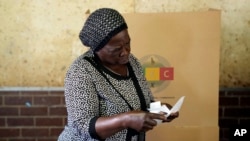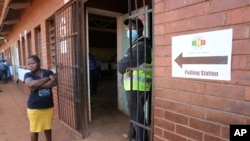Registered voter Sibonokhule Buhlungu says there is a lot of weariness among voters.
He said that violence during the 2018 elections could also be a contributing factor as to why in his view most people are not keen to participate in this year's vote.
Evernice Mnando, who leads a non-governmental organization for university students, Female Students Network, says the lack of change after previous elections contributes to voter apathy.
"In my view at the moment I do not think people care about elections," she said. "They feel they are tired. They feel elections are not going to bring anything that they desire with their hearts. People are not interested, but to some extent this time I have seen that a lot of youths have registered to vote. We are optimistic that maybe the participation will be increased in the 2023 harmonized election."
Hilda Mahumucha, a lawyer from Harare thinks people care about elections.
"People are so keen to vote, women are so keen to participate," she said. "There have been other economic challenges which people do not know how to solve, and they feel by voting, maybe changing their local member of parliament or maybe through changing their councilor who is directly involved in their development work at community level, they feel if they change, they can achieve something or there can be a positive change."
A young voter, Norbert Kuvamudiki, who lives in Harare, concurs.
"I think young people do care about elections because it represents their hope," he said.
"They find hope in voting and having a leadership that represent their needs and demands. But considering what has happened in the previous elections some young people are now fed up with elections because some of their intended results has not come up and they feel aggrieved because of that. We just hope that during this harmonized elections they will be able to turn up."
Voting began Wednesday morning for Zimbabwe’s presidential, parliamentary and municipal council elections.
At least 6.6 million people are registered to vote.



Forum